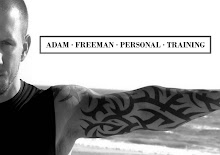
The amounts of foods labeled fat free have infiltrated the market at every turn. Fat-free cheese, fat-free chocolate, fat-free ice cream, fat-free dinner entrees and other foods labeled fat-free have become regularly stocked merchandise in stores. These foods are indeed better for you. However, consuming these foods does not always result in a fat-free body.
The reason why is people believe that these foods are fatfree is because it says on these food labels fatfree and it even says; 0 grams of fat on the nutrition label on the back of the package. However, this does not always mean that the item is fatfree. This is because the fatfree label may not necessarily represent all the kinds of fat that are in a food.
This does not mean that all foods that say they are fat free are not completely fat free. It just means that you have to watch very closely on each food label to see exactly what fat has been removed from the food so you know exactly what to expect when you eat it. You also need to be aware of the types of fat that are contained in food as well.
The different types of fat that people take into their bodies include trans fat, poly and monounsaturated fats and saturated fats. Saturated fats and trans fats and are the ones that are most used to fry foods and/or to increase the shelf lives of foods. These are the ones that are most likely to cause high cholesterol and to clog a persons arteries. These types of fats are found in a variety of foods.
Saturated fats are found in most meats, dairy foods, and eggs. They can also be found in certain oils such as coconut, palm, and kernel oil. These are the types of fats that are solid at room temperatures.
Trans fats are fats that have been made into a solid or a partial solid. Therefore, even though trans fats are considered unsaturated they have become a concern because they have a similar function as the saturated fats in many cases. As stated earlier they have the potential to raise a persons cholesterol level and to clog the arteries.
Any foods that have the ingredient; partially hydrogenated cooking oil or hydrogenated cooking oil are considered to contain trans fat. These should be eaten in very small doses. If not, these food substances can become harmful to ones health. Some types of foods that trans fat include crackers, cookies, snack chips, and fried chicken. It is also included in ingredients such as shortening, lard, butter, or hard margarine.
Trans fat is one source of fat, which until recent years, had not been included on food labels that say fat-free. This is one reason why food labels that say fat free might not necessarily be fat free. Therefore, be careful when reading fatfree food labels. You want to make sure that it says; 0 grams of trans fat and 0 grams of saturated fat, before you purchase the fat free item.
One other aspect of fat-free that you will need to consider is that carbohydrates that are not used up by the body turn into fat as well. Therefore, even though a food item says fat free on the package you still need to eat it in moderation.
One example of a fat free food that many people eat is pretzels. You cannot eat a whole bag of pretzels and expect to lose weight. The reason why is that pretzels may contain a high carbohydrate count. The more carbs you take in the more chance you have of having these carbohydrates turn into fat. This is perhaps one of the most important points to remember when choosing fat free foods and incorporating them into your diet.
Choosing to eat fat free versions of most foods can be very beneficial to you. The point is, however, to make sure that you remember also to eat a balanced diet. Not only that, but you need to have an exercise plan. Even if you eat less food you may not lose as much weight as you want to lose if you do not exercise.
For the best results, you will want to incorporate a balanced diet that gives you the nutrients you need from day to day. That means that you should have a specific amount of grains, meats, dairy, fruits, vegetables, and fats in your diet (the amounts of each vary depending upon which diet you follow). This along with a regular exercise regiment that helps you burn fat will benefit you the most.
If you follow through daily on a regular diet and exercise plan you are likely to lose weight and keep it off. In this case, fat free foods will benefit you and help you stick to your healthy lifestyle.
Train Hard!
Adam Freeman
Master Personal Trainer
AdamFreemanPT@yahoo.com







No comments:
Post a Comment